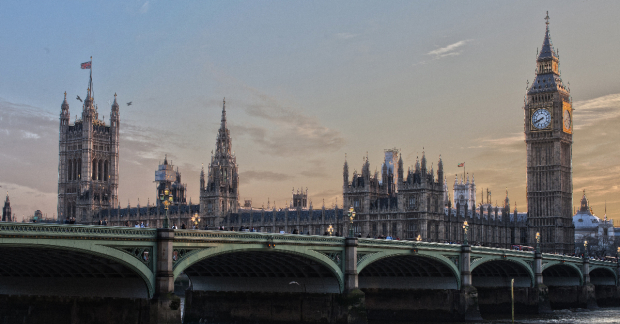DCMS releases report saying the Government's support for the arts during the pandemic is ‘vague and slow-coming'
The committee did not have positive words to say about the government’s actions during the pandemic

The DCMS (Department of Digital, Culture, Media and Sport) has published a new committee report describing the Government's support for the arts sector during the pandemic as "vague and slow-coming" and that it came too late to save aspects of the industry.
Released today, the piece elaborates by stating that "while considerable effort has been made to resume professional football, the Government's roadmap for when theatres will reopen has been vague and slow-coming".
The report goes on to say that while the proposed £1.57bn package to support the arts community was welcome, "it was too late for many in the sector and on its own will not be enough to stop mass redundancies and the permanent closure of our cultural infrastructure".
The committee advocates an extension to the widely used furlough scheme for the arts sector "until mass gatherings are permitted under the Government's and Devolved Administrations' Covid-19 guidelines", as well as enhanced measures to support freelancers and small companies.
The report has also asked for "clear, if conditional" dates as to when theatres may be able to reopen, as well as sector-specific tax reliefs plus an extended VAT cut for the sector.
The DCMS committee's report was compiled by a number of MPs – Julian Knight MP (Chair) (Conservative, Solihull), Kevin Brennan MP (Labour, Cardiff West), Steve Brine MP (Conservative, Winchester), Philip Davies MP (Conservative, Shipley), Alex Davies-Jones MP (Labour, Pontypridd), Clive Efford MP (Labour, Eltham), Julie Elliott MP (Labour, Sunderland Central), Rt Hon Damian Green MP (Conservative, Ashford), Rt Hon Damian Hinds MP (Conservative, East Hampshire), John Nicolson MP (Scottish National Party, Ochil and South Perthshire) and Giles Watling MP (Conservative, Clacton).
One vital aspect of the DCMS report is regarding insurance. The committee has highlighted how the government "must address the urgent need for the UK's cultural industries to be covered by adequate insurance". This would, according the committee, take the form of a pandemic indemnity scheme, similar to the Pool Re scheme set up in the 1990s. According to a testimonial from LW Theatres: "Every promoter, producer, and hirer of our venues has told us that they are unable to secure sufficient insurance for events/shows going forward."
One proposal involves the DCMS creating "an emergency fund to guarantee coverage for TV and film productions, stage productions, concerts and tours interrupted or abandoned due to Covid-19".
The plight of freelancers has been significant within the arts sector. According to the report, "although HM Treasury estimated that Self-Employment Income Support Scheme (SEISS) would cover 95 per cent of those who receive the majority of their income from self-employment, the evidence we have received indicates this is not so in the creative sector."
The report cites estimates that "around 30 to 35 per cent" of freelancers are not covered by the SEISS, and calls for flexible, sector specific versions of the CJRS (Coronavirus Job Retention Scheme, ie the furlough system) and SEISS guaranteed for the creative industries until their work and income returns to sustainable levels."
Find out more about the government's pilot performances
The way in which the £1.57bn package is distributed is crucial, according to the report: "we are concerned that freelancers and small companies will continue to fall through the gaps of Government support". This isn't just about money, but also about representation: "The way in which the government does funding – It must also ensure an equitable distribution of cultural resources across all parts of the UK—north and south, rural and urban—and support for BAME and disabled artists and audiences."
Finally, the report claims that the "Cultural Renewal Taskforce" set up by the government has been: "slow to demonstrate meaningful progress. The fact it was only established two months after lockdown means valuable planning time for the return of live performance has been lost.
"Moreover, telling venues they can reopen with just a few days' or weeks' notice does not address the lead times for performance, the challenges of social distancing or the concerns about audience behaviours. To provide more certainty and allow for forward planning the Government should, no later than 1 August, publish ‘no earlier than' dates for stage 5 of its plan to reopen performing arts venues."
The report also states that the Taskforce should push to find more technological solutions to the ongoing crisis, collaborating with other sectors.












